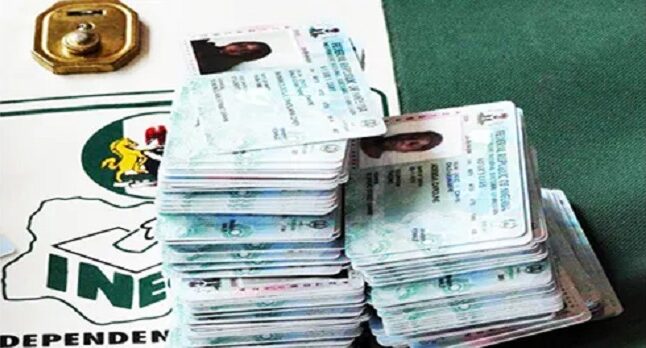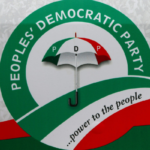As a Nigerian, passionate about the electoral process and willing to participate, you begin to wonder if the entire dynamic electoral process is all designed to either frustrate you or make participation some kind of survival of the fittest. This is probably the easiest way to describe the entire process of being a registered voter and eligible to vote on election day. Right from the process of visiting the Independent National Electoral Commission (INEC) office, usually some distance from residential areas, joining the queues and eventually getting registered. After enduring conflicting information on the readiness of your Permanent Voters Card (PVC), you eventually take the pain to visit INEC office for collection and get greeted with the response that the voters’ card is still not ready. This is the situation of many Nigerians who remain determined to participate in the 2023 general elections as the challenge with PVC collection persists.
Beyond these challenges of unavailable PVCs, there has been a series of reports of missing PVCs, poor communication on place and time of collection and alleged extortion by INEC officials in the process. The combination of all these factors is enough to dwindle citizens’ confidence from participating in the process. Although the commission categorically stated that the last batch of cards are ready for collection from 12th December 2022 to 22nd January 2023. This information was amplified by organisations working on elections in a bid to mobilise citizens to collect their cards and participate in the 2023 general elections. The ecstasy that followed this news, especially for potentially new voters who just turned 18 was doused by challenges experienced in the collection of PVCs across Nigeria.
Over 2.1m PVCs uncollected in Lagos, Abuja – INEC
Jos residents ask INEC to bring PVCs to polling units
With close to 20 million uncollected Permanent Voters Cards from 2011 and another over nine million new registrants between June 2021 and July 2022, the least Nigerians deserve is an effective way to ensure all eligible voters collect their cards and participate in the 2023 general elections. The commission itself in recent times has continued to lament the low PVC collection across various states, which remains a major cause of concern. For instance, there are about 1.7 million uncollected PVCs in Lagos State, about 500,000 uncollected cards in Abuja, over 160,000 people in Kogi State have abandoned their cards at the INEC offices in the state. This is the case across all 36 states of Nigeria.
No doubt, the condemnable attacks on INEC offices in some parts of the country has not helped the preparatory cause for the elections with over 50 offices attacked in the last three years. However, the threshold for conducting credible elections must not drop, especially in the area of citizens participation. While it is the responsibility of registered voters to visit the INEC office in their local government of registration to collect the cards as INEC does not distribute voters’ cards to people’s residents, the commission must develop effective strategies to ensure the process is seamless.
There is no doubt that INEC has in recent times harnessed the use of innovative technology to promote transparency and ensure efficiency in its process. With comprehensive data of registered voters and PVCs printed, the commission with support of CSOs can develop a strategic standard of operation to make the process easier and faster. This intentionality will first enable the accurate identification of eligible voters whose PVCs are laying at INEC office via their names, phone numbers, email and location right from 2011 till date. In this vein, a bulk email or Short Message Service (SMS) can be sent to potential voters who are yet to collect their PVCs with information like local government, wards or address of where they could collect their cards. Although the SMS is said to be deployed but this has to be decentralised to all locations and to every citizen who is yet to collect their PVCs right from 2011.
This will no doubt go a long way first informing citizens that their cards are indeed ready for collection and the exact location where they can collect it while alleviating the challenges of endless visits to either the wrong locations or meeting unavailable PVCs. Basically, the idea is not to “spoon-feed” the potential voter as some may claim but to make participation easier and seamless. Citizens themselves must show the zeal and will to participate in the process by asking the right questions and making inquiries to the appropriate channels, especially regarding PVC Collection, INEC Local Government Offices, Registration Area Centres, Polling Unit locations and contacts of electoral officers at their location of electoral participation. Beyond this, the election management body must continue to provide accurate and timely information mainly to counter misinformation about the entire process. This will build some level of confidence in citizens and further promote transparency as all eyes seem to be on the commission to deliver its most credible process since its establishment.
With 29 million voter turnouts, which is barely 35 per cent of the 84million registered voters in 2019, there is an opportunity to ensure the future of Nigeria is not decided by a minority of its voters who are just about 10 per cent of the entire population. In 2023, Nigerians have the opportunity to use the power of their PVCs to vote in the right leaders and all stakeholders, especially INEC should up their game in order not to dim citizens confidence as elections draw nearer.
Abideen is the Kwara state coordinator of the NotTooYoungToRun movement and the Director, Brain Builders Youth Development Initiative [email protected]

 Join Daily Trust WhatsApp Community For Quick Access To News and Happenings Around You.
Join Daily Trust WhatsApp Community For Quick Access To News and Happenings Around You.


